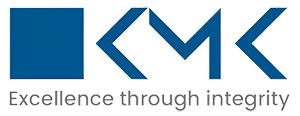Why U.S. Businesses Are Moving to Cloud-Based Accounting in 2025—And What You Should Know Before You Do

Accounting is no longer confined to desktops and dusty ledgers. In 2025, U.S. businesses are embracing cloud accounting solutions—fueled by remote work, automation, and the demand for real-time financial reporting. At the center of this evolution is not just software, but a complete shift in how financial operations are managed—via remote financial management and automated accounting software workflows.
From small startups to PE-backed enterprises, companies across industries are replacing legacy desktop tools with flexible, secure cloud migration strategies powered by QuickBooks Online, Xero, and NetSuite. But while the benefits are clear, the transition isn’t just about buying new software—it’s about reshaping how your finance function works through cloud accounting solutions, remote financial management, and real-time financial reporting, all enabled by automated accounting software.
This guide explores why the move to cloud accounting solutions is accelerating in the U.S. and what your business needs to know before undergoing a secure cloud migration.
The Cloud Boom: What’s Driving U.S. Adoption?
Several powerful trends are pushing U.S. businesses to adopt cloud-first cloud accounting solutions:
- Remote Work Surge
The shift to hybrid and remote teams demands robust remote financial management. With secure browser-based access, finance teams can operate seamlessly, no matter where they are. - Efficiency & Automation
Integration with AP/AR, payroll, and tax platforms enables automated accounting software to streamline repetitive tasks, freeing teams for higher-value work. - Real-Time Insights
Real-time financial reporting gives CFOs and owners instant access to cash flow data, P&L statements, and dashboards—critical for fast, informed decision-making. - Security Demands
Cyber threats are rising. Leading cloud accounting solutions provide encrypted storage, two-factor authentication, and continuous backups—all part of a secure cloud migration strategy. - Scalability without Infrastructure
As businesses grow, cloud accounting solutions effortlessly scale without costly server upgrades, giving firms endless flexibility.
Core Benefits of Cloud Accounting Solutions
Here’s what U.S. businesses gain by shifting to cloud accounting solutions:
- Anytime, Anywhere Access: Ideal for global or remote teams, enabling effective remote financial management.
- Seamless Collaboration: Multiple users can update books in parallel, enhancing team productivity.
- Reduced IT Overhead: Automatic updates and backups free teams from manual maintenance.
- Compliance-Ready: SOC 2 certified providers standardize cybersecurity in secure cloud migrations.
- Rapid Recovery: Automated backups eliminate downtime in case of cyber incidents.
These features are powered by automated accounting software, enabling frictionless workflows and tighter financial control.
Leading Platforms for Cloud Accounting Solutions
Platform | Ideal For | Highlights |
QuickBooks Online | SMBs | Highly integrated, easy-to-use, widely adopted |
Xero | Startups, services | Clean UI, powerful reporting, strong ecosystem |
NetSuite | Mid-market/Enterprise | ERP-grade, extensive automation tools |
FreshBooks | Freelancers | Simple billing, time entry, and invoicing support |
Choose based on your team’s size, integration needs, and desire for real-time financial reporting and remote financial management.
What U.S. Businesses Must Know Before Switching
A successful secure cloud migration requires planning beyond software purchase:
- Data Cleanup & Migration:
Prepare your chart of accounts, historical records, and reconcile old data before you go live with cloud accounting solutions. - Training & Change Management:
Equip your finance team to adopt automated accounting software, learn new workflows, and work effectively in a remote financial management environment. - Integration Mapping:
Identify tools—like payroll, CRM, inventory—that must tie into your system and verify they support your chosen cloud accounting solutions. - Security Setup:
Activate encryption, MFA, and user roles immediately after migration to maintain financial data security. - Backup Protocols:
Even with cloud systems, set export schedules and contingency plans to ensure real-time financial reporting remains available during outages.
Read Also: Migration to Cloud Accounting: Need of the Hour
How KMK Supports U.S. Businesses Through Secure Cloud Migration
At KMK, we specialize in guiding U.S. businesses to adopt top-tier cloud accounting solutions, ensuring a safe and efficient secure cloud migration:
- Platform selection and licensing tailored to your needs
- End-to-end data migration, cleanup, and reconciliation
- Configuration of roles, permissions, and automated workflows
- Integration with payroll, AP/AR, CRM, and tax tools
- Ongoing support and optimization to reinforce automated accounting software best practices
Whether transitioning from QuickBooks Desktop or Excel to a purpose-built cloud tool, KMK ensures your finance framework is robust, scalable, and compliant.
Final Thoughts: The Future Is in the Cloud
Cloud accounting solutions are more than software—they’re a transformation in remote financial management, real-time financial reporting, and efficient, automated workflows. For U.S. businesses in 2025, they represent a new standard in adaptability, transparency, and security. Thinking about making the switch? Choose a partner who understands not just tech, but your business goals—and can guide you through a secure cloud migration. That’s the KMK advantage.
 Dev Kothari, a seasoned leader at KMK, heads the Special Teams, where he leverages his extensive expertise in managing large-scale accounting and tax return processing for U.S.-based clients. With a keen eye for workflow optimization and stakeholder collaboration, Dev drives exceptional efficiency and quality in high-volume project delivery. As a dual-qualified CPA (AICPA, Arizona) and Chartered Accountant (ICAI), Dev’s blend of strategic insight and technical prowess positions him as a key asset in ensuring KMK’s clients consistently achieve their financial goals.
Dev Kothari, a seasoned leader at KMK, heads the Special Teams, where he leverages his extensive expertise in managing large-scale accounting and tax return processing for U.S.-based clients. With a keen eye for workflow optimization and stakeholder collaboration, Dev drives exceptional efficiency and quality in high-volume project delivery. As a dual-qualified CPA (AICPA, Arizona) and Chartered Accountant (ICAI), Dev’s blend of strategic insight and technical prowess positions him as a key asset in ensuring KMK’s clients consistently achieve their financial goals.
Let’s Take Our Conversation Ahead
KMK is a top outsourced accounting and tax service provider. We offer end-to-end accounting and tax services for small to mid-sized businesses, with a team of 875+ professionals, including certified public, chartered, and staff accountants.
USA:
651 N Broad St Suite 205, Middletown, DE 19709, USA
Phone: 310-362-2511
India:
300, Sankalp Square-3B
Sindhu Bhavan Marg,
Ahmedabad, Gujarat 380058
For Career: 91-98240-42996
Developed by Bluele | Copyright © 2026 | KMK Ventures Private Limited. | All Rights Reserved


